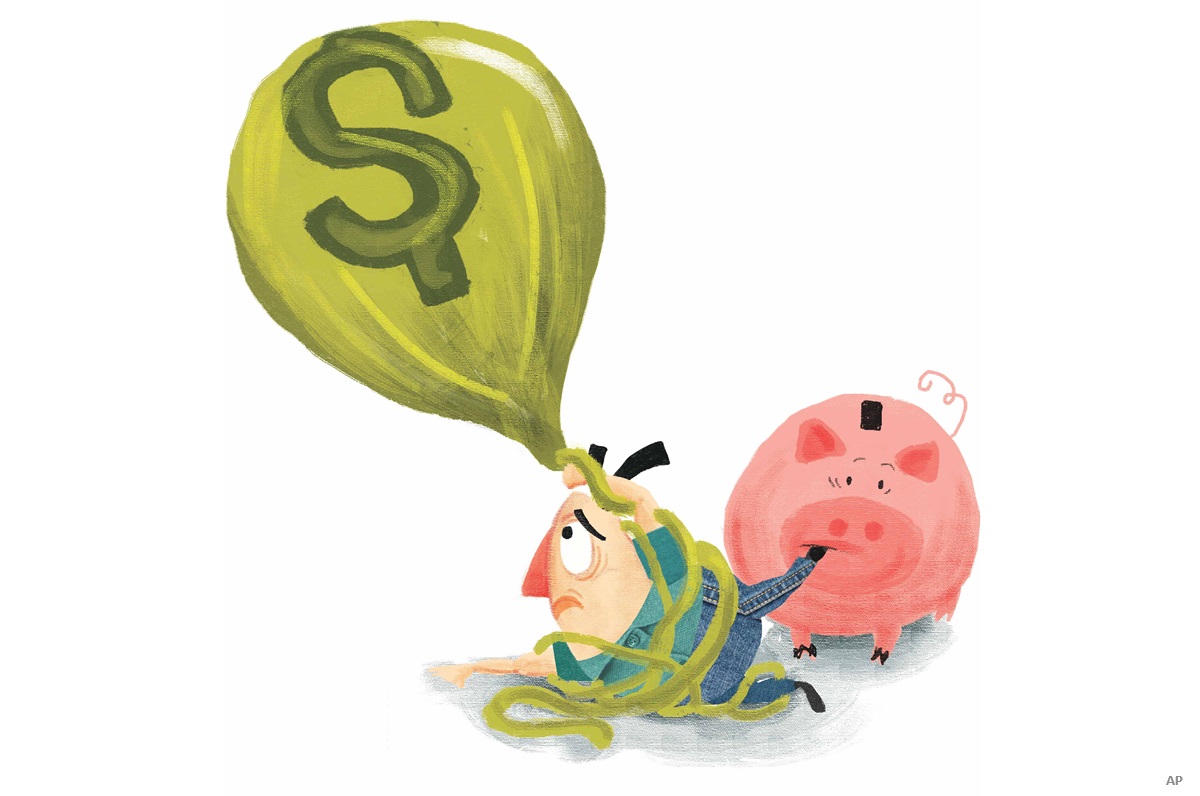
Markets appear to be shrugging off worries of continued central bank monetary tightening, and several bank failures in the U.S. But we’re not out of the woods just yet.
Given the uncertainty about the direction of leading economies it may be prudent to reduce exposure to equities and beef up fixed income weightings, according to Sarah Riopelle, vice-president and senior portfolio manager, investment solutions, at Toronto-based RBC Global Asset Management (GAM) Inc., and a lead manager of the 4-star silver-medalist $1.4 billion RBC Balanced Growth & Income F (also available in Series D).
Still Many Outcomes in the Cards for Investors
“There are a wide variety of potential scenarios for both the economy and markets over the next few quarters,” says Riopelle, who oversees about $165 billion in assets spread across 104 different funds and strategies. She joined the industry in 1996 after she earned a Bachelor of Commerce in finance and international management from the University of Ottawa. “The macro-economic backdrop remains pretty murky. Before we talk about equity markets, we have to look at the economy. Overall, it’s been fairly resilient and has benefitted from a lot of pandemic-related stimulus and pent-up demand coming from the lockdowns. We saw a rapid increase in interest rates since 2022, which are starting to show signs of making an impact.”
Prepare for a Recession
Leading economic indicators are pointing to contraction, and RBC GAM is expecting a recession in the latter half of 2023. “Reflecting our concern about softening economic growth is the fact that over the past year we have gradually reduced the equity weighting by 400 basis points and are neutral on our asset mix for the first time in many years. We have some concerns about how equity markets may perform over the next six months.” Currently, the mix is 60% equities, and 40% fixed income and cash.
“We began 2022 with an overweight in equities and an underweight in bonds,” says Riopelle, who shares duties Jennifer McClelland, vice-president and senior portfolio manager on the North American equities team and Brad Willock, vice president and senior portfolio manager, who oversees core and income-oriented U.S. equity mandates. “On the fixed income side, we were worried about how low interest rates were and concerned about the possibility of yields rising from historic lows. We were underweight bonds and had a preference for equities. But as we embarked on this tightening cycle, yields began to rise, and we started to buy back bonds and reduce the underweight and moved to a neutral position in fixed income. At the same time, we were selling stocks and de-risking the portfolio, as we saw more tightening by the Federal Reserve. As we saw an increasing risk of recession, we gradually brought the equity weight down. Two months ago, we got ourselves into a neutral position,” says Riopelle, adding that significant increases in yields, and corresponding drops in prices (bond yields and prices move in the opposite directions) led to the portfolio shift.
Market Says Another U.S. Hike Likely
Riopelle notes that the market is already pricing in another 25 basis point increase by the Federal Reserve in July. “The market is expecting cuts in the back half of 2023. We share that view and believe there is one more hike coming from the Federal Reserve over the next few months. Then we expect they will pause, and potentially cut rates at the end of 2023 and into early 2024.” Much will depend on how the economy develops, adds Riopelle, and if indeed it slips into recession, then interest rate cuts will likely be introduced to support the economy. “We are very data-dependent and keeping a keen eye on inflation and how it responds to the Fed’s policy thus far. Yes, inflation is coming down but it’s not coming down as quickly as they had hoped. We are seeing a bit of softening in the employment markets, so we have to keep a close eye on that as well.”
Still Seeing Cheap Stocks
As for equity valuations, Riopelle maintains that in late 2021 stocks were above fair value. “Then we started to see a correction in equity markets. That erased much of the over-valuation that existed at the end of 2021. Equities are now much more reasonably priced, according to our fair value models, especially in regions outside of the U.S.,” observes Riopelle, adding that a composite of global stock markets showed that in late 2021 equities were about 40% above fair market value. “Stocks are now much better valued than they were 18 months ago. If you take the U.S. out of that composite then it’s about 10% below fair value, because the U.S. is the most expensive market in the world. We are much happier with valuations. Now our focus has shifted to the earnings side of the equation. So, if a recession does take hold, then it will have an impact on corporate profits, and by extension the stock market.” She notes that consensus analysts’ estimates call for earnings to be flat in 2023, but profit growth may accelerate by the end of 2024.
Earnings Could Spell a Soft Landing
The shift in asset mix reflects the team’s view of an approaching recession. But if they are mistaken on that view then the question is, how will they adjust the mix going forward? “Is the Fed going to achieve a soft landing? Does that mean the equity market is not going to adjust in the face of recession and we are sitting on a neutral equity weight? That’s why watching earnings is the most significant indicator of equity markets,” says Riopelle. “That’s probably the thing I worry about most: I wonder why earnings have not adjusted as much as I expected them to. This is probably the most telegraphed recession of all time, which is expected to happen in the back half of 2023. So I ask myself, why is the equity market not adjusting to reflect that? I think about that a lot.”
Riopelle adds that many anxious clients, who are concerned about market volatility, have taken a short-term view and switched some assets to cash and guaranteed investment certificates. “This might be appropriate for some investors. But those with a long-term horizon, or who need higher investment returns, might put themselves in a position where they can’t meet their investment goals.”
Time to Go Both Income and Growth
From a strategic viewpoint, RBC Balanced Growth & Income F is invested in a blend of four RBC fixed income funds and two RBC equity funds, which in total account for about 54% of the fund. “On a tactical basis, we are slightly underweight North America and emerging markets, and overweight other equity regions. Equities are more reasonably priced, especially in regions outside the U.S.” The remaining 46% is held in a mix of stocks in Canada and the U.S. The bonds are split between 40% government and 60% corporate bonds. Launched in 2013, the fund was purposely designed to focus on Canada and appeal to investors seeking capital growth and, to a lesser extent, income.
Based on the current relatively cautious asset mix, the fund has an average weighted yield of 3.9%, before fees (a combination of the 5.1% fixed income yield and 3.1% dividend yield from stock holdings).
Riopelle notes that the RBC Investment Policy Committee, which meets on a frequent basis, is responsible for making the tactical asset mix decision on all multi-asset portfolios. “This group is made up of all asset leaders around the firm and our approach has been very data-dependent. For example, our chief investment officer’s chart package is now 101 pages long, with about four charts per page,” says Riopelle, adding that the team has a vast array of tools when analyzing markets and making decisions about portfolios.
Market Data May Show Underlying Distress
Among the tools at the team’s disposal is a so-called macro-barometer, an equally-weighted composite of 10 categories, comprised of 60 underlying signals on the economy, credit conditions, and market and technical indicators. “This barometer recently turned negative, so we are watching it closely,” says Riopelle, noting that the main driver of the decline has been the deterioration in technical factors, partly caused by the narrowing breadth of the U.S. stock market. A handful of technology companies, such as Alphabet Inc. (GOOG), have left the impression that the U.S. market is strong when most stocks have been struggling or even down.
From a performance standpoint, RBC Balanced Growth & Income F has returned 3.65% year-to-date (June 8) versus 4.96% for the Global Equity Balanced category. Within fixed income, Riopelle concedes that the higher allocation to global bonds, compared to the peer group, has detracted from short-term performance, as Canadian bonds outperformed global bonds. In a similar vein, the higher allocation to emerging markets equities, relative to the peer group, has also detracted from performance, since emerging market equities are flat, as China’s recovery has waned. On a longer-term basis, however, the fund has outperformed. Over three and five-year periods, the fund returned an annualized 6.24% and 4.99%, respectively. In contrast, the category returned an annualized 4.73% and 3.92%.
Base Case Not So Bad
Going forward, Riopelle is upbeat, even though she also expects continued volatility, especially in equity markets. “Our base case is low to mid-single-digit returns in stocks and bonds. But there are a wide variety of potential scenarios, both good and bad. Still, over the longer term, the massive moves we have seen in many markets over the past year have had a meaningful positive impact on our return forecasts for the decades ahead.” Riopelle argues that the 10-year annualized return for a balanced portfolio has improved from 4.9% at the start of 2022 to 6.5% today. “The financial landscape has shifted. There is better return potential for investors with a long-term time horizon.”








.jpg)













